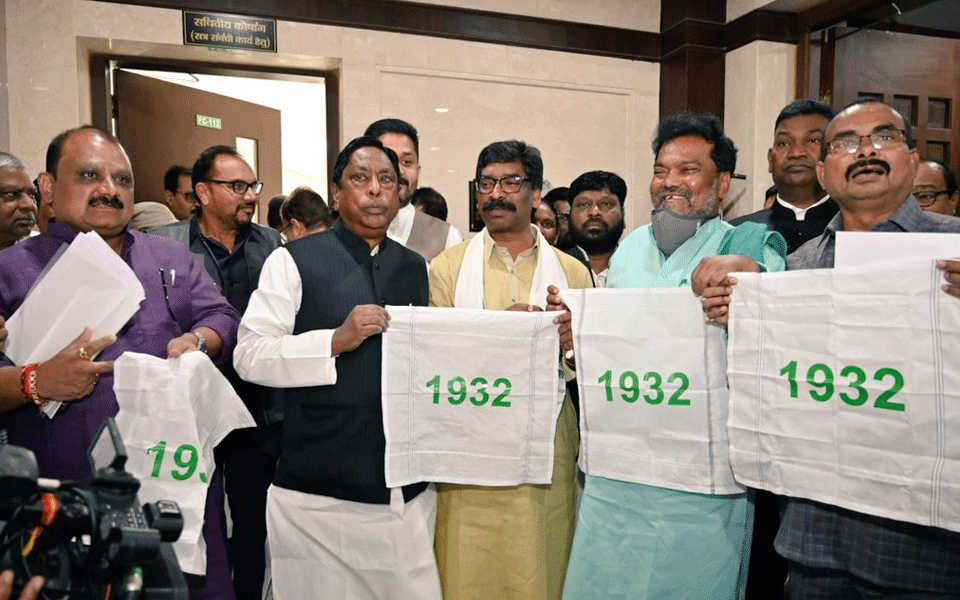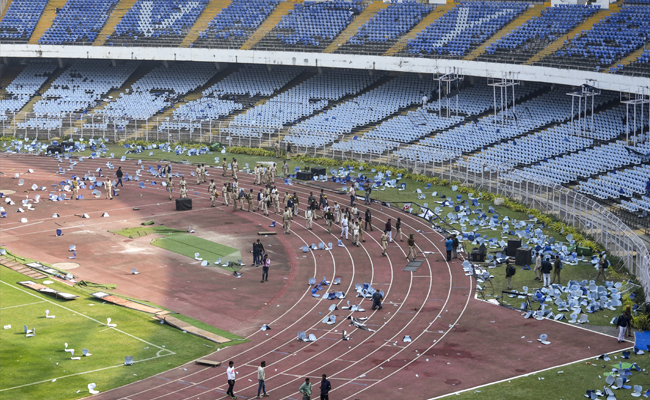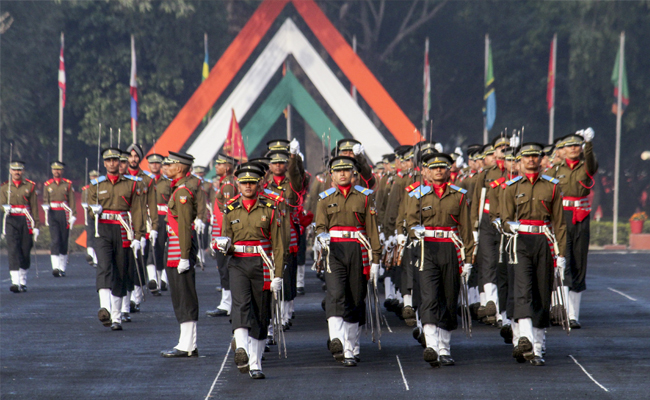Ranchi (PTI): A bill that proposes to use 1932 land records to determine people's domicile status was passed in the Jharkhand assembly on Friday.
In a special session, the Jharkhand Definition of Local Persons and for Extending the Consequential Social, Cultural and Other Benefits to such Local Persons Bill, 2022 was passed.
The bill was passed amid demand by tribal bodies that the last land survey conducted by the British in 1932 be used as the basis for defining locals as against the currently accepted cut-off of 1985.
People whose ancestors were living in the area before 1932, and whose names were included in that year's land records will be considered local residents of Jharkhand, when the proposals in the bill come into effect.
Speaking in the assembly, Chief Minister Hemant Soren said the day "will be written in gold letters" in the state's history.
Hitting out at the BJP, he said the opposition MLAs were creating uproar as it was in tremendous "pressure, fear and anxiety" due to the milestones achieved by the JMM-led coalition, which wants all-round development of the state, "instead of hatching conspiracies".
Amid the chaos in the House, senior BJP MLA Bhanu Pratap Shahi was heard saying, "We have come to support the legislation... give us the opportunity to speak."
A proposal to send the bill for vetting by an assembly committee was rejected.
The bill was passed at a time when the state was passing through a political crisis, triggered by summons issued by the Enforcement Directorate to Soren, besides uncertainty over his continuance as an MLA in the office of profit case.
After the bill was passed, the House was adjourned sine die.
Let the Truth be known. If you read VB and like VB, please be a VB Supporter and Help us deliver the Truth to one and all.
New Delhi (PTI): Police here have busted a crime syndicate involved in traffic fraud and extortion, arresting three people including the alleged mastermind who sold fake stickers to help commercial vehicles bypass no-entry restrictions, an official said on Saturday.
The police said they dismantled a third organised syndicate linked to traffic-related frauds, with the arrest of Rinku Rana alias Bhushan, his associate Sonu Sharma and Mukesh Kumar alias Pakodi, who was also connected to another extortion syndicate.
According to the police, Rinku Rana was running a well-organised network that facilitated the movement of commercial goods vehicles during restricted hours by selling fake 'marka' or stickers for Rs 2,000 to Rs 5,000 per vehicle every month. The stickers were falsely projected as authorisation to evade traffic challans.
During raids, the police recovered Rs 31 lakh in cash, property documents worth several crores of rupees, over 500 fake stickers and six mobile phones allegedly used to operate the syndicate.
The crackdown followed a complaint filed by a traffic police officer in April this year after a commercial vehicle tried to evade checking by producing a fake sticker claiming exemption from enforcement action.
Investigation revealed that social media groups were being used to coordinate the illegal movement of vehicles and alert drivers about traffic police checkpoints, police said.
"A parallel system was being run to cheat drivers and vehicle owners while undermining traffic enforcement. On the basis of evidence, provisions related to organised crime under the BNS were invoked," a senior police officer said.
Sonu Sharma, the police said, managed social media groups through which stickers were sold and real-time alerts were circulated regarding traffic police movement. He also acted as a link between Rana and drivers operating in the field.
In a related development, Mukesh Kumar alias Pakodi, an associate of Rajkumar alias Raju Meena, who was earlier arrested under the Maharashtra Control of Organised Crime Act (MCOCA), was also apprehended.
Mukesh allegedly helped extort money from transporters and was involved in blackmailing traffic police personnel by recording enforcement actions, the police said.
Investigators alleged the syndicate led by Rajkumar deployed drivers to deliberately violate traffic rules and secretly record police officials during challans, later using manipulated videos to extort money under threat of false allegations.
The police said that in total, eight accused belonging to three different organised crime syndicates linked to traffic frauds and extortion have been arrested so far.
Further investigation is underway to trace the remaining members, conduct financial probes, and analyse digital evidence recovered during the raids, officials added.





